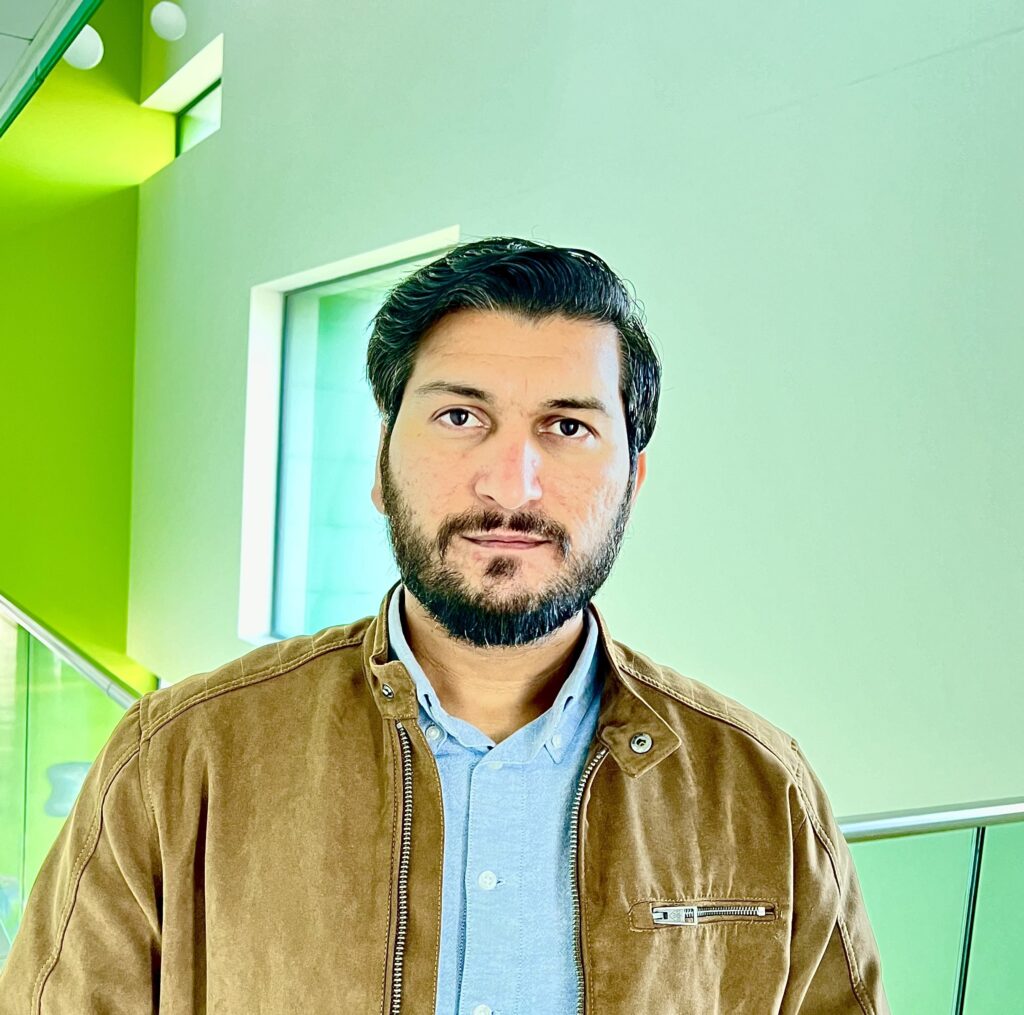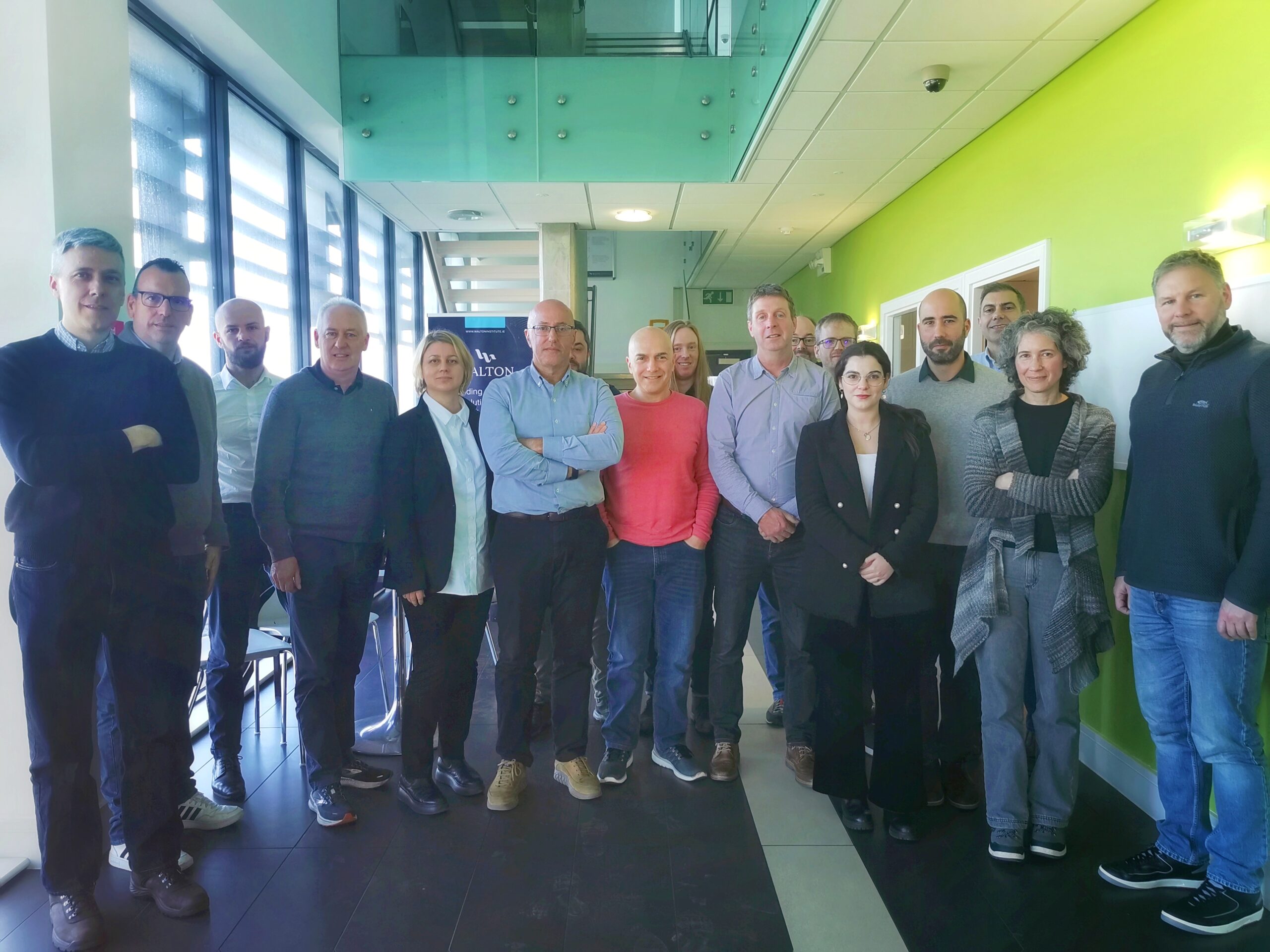A Day in the Life of a Researcher – Ghulam Murtaza
Tags:
Welcome to a day in the life of a Walton Institute at South East Technological University (SETU) researcher. This article focuses on Dr. Ghulam Murtaza, a Postdoctoral Researcher at Walton Institute, part of the CONNECT Science Foundation Ireland Research Centre.
Before joining Walton Institute in May 2023, Murtaza pursued his PhD at the University of Naples, Federico II, and the European Laboratory for Non-Linear Spectroscopy, Italy. During his PhD, his research focused on Molecular Quantum Emitters for Quantum Key Distribution. Murtaza completed his Master’s degree in Electronics and Communication Engineering from Beijing University of Posts and Telecommunications in China, specialising in Optical Communication. Prior to that, he worked as an RF DT Engineer in a Telecom Company in Pakistan. His educational journey started with a BSc. in Electrical Engineering with a specialisation in Telecommunication from Govt. College University in Faisalabad, Pakistan.

Outline your day-to-day
Being a postdoc is different than a PhD or Master’s student as it necessitates the independent establishment of deadlines and responsibilities. Usually at Walton Institute, my day commences with responding to companies and suppliers regarding quotes and orders for the development of the Walton Quantum Optics Lab. I also attend weekly meetings with the Emerging Networks Laboratory (ENL) Division and another with the Director of Research, Dr. Deirdre Kilbane, to discuss updates and plans. In the remaining time, I dedicate myself to writing paper drafts and reading papers. Meanwhile, I also design new experiments that address the challenges in quantum communication via satellite.
How and why did you get into your research field?
During my Master’s degree in China, while writing my thesis on Optical Communication, I encountered the idea of achieving security using the basic laws of Quantum Physics. My academic background primarily lies in the classical side rather than quantum. Intrigued by this concept, I decided to pursue a PhD in this field. Despite having knowledge in optics and optical communication, I had not previously studied quantum technologies. I commenced my PhD journey with the Experimental Quantum Nanophotonics Group at LENS, Italy. With the guidance of my supervisor and co-supervisors, I delved into the intricacies of this research field.
The more time I spent at LENS, the more motivation I gained. Transitioning toward Quantum Technologies turned out to be my most rewarding decision, especially as countries worldwide are now heavily investing in quantum research and development. This field is propelling towards a new era of technological advancement and scientific understanding.
What research projects are you currently working on?
Currently, I am working on Quantum Communication via Satellites with the SFI CONNECT Centre. In pursuit of this goal, I am actively involved in developing the Quantum Optics Laboratory at Walton Institute and conducting experiments with new prototype Quantum Communications setups.
What areas you do you see yourself working on in the future?
In the future, I will continue working in the same research field and on similar projects. I will engage in finding novel ideas for quantum communication and integrating quantum and classical networks.
Your big and little wins – anything you discovered during a particular project?
Being a part of Walton Institute and the SFI CONNECT Centre, I have learned a lot. During my PhD, my main focus was solely on experiments, but here I have learned how to work towards establishing a new lab and experimenting with different quantum key distribution (QKD) protocols. I have acquired skills in managing my own deadlines and progress
What are the challenging and enjoyable aspects of being a researcher in your field?
Being a researcher in any field is both challenging and enjoyable because it is challenging to perform novel experiments and get better results and findings, but when you succeed, it feels so enjoyable.
Why is your research necessary?
Every day, quintillions of bytes of data are generated and exchanged over classical networks, and privacy relies on the assumption that factoring large integers is a computationally intractable problem. Quantum cryptography provides unconditional security, based on the laws of quantum mechanics. Quantum computing is advancing, with quantum processors already available from companies like Google and IBM. This disruptive hardware advancement threatens current security methods. Due to these vulnerabilities, quantum cryptography is necessary for future prospects.




